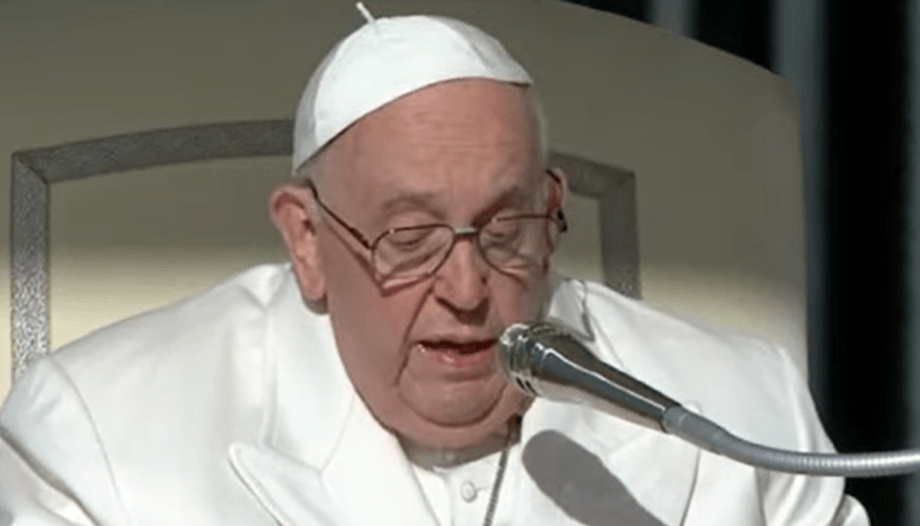In the ninth session of the cycle of catechesis dedicated to 'the passion for evangelization: the apostolic zeal of the believer', which began on January 11 of this year, the Holy Father Francis reflected today on the theme "Witnesses. St. Paul." (Reading: Gal 1,22-24).
The Pope pointed out first of all that "the example of St. Paul is emblematic of this theme. Looking back over his life, we see that Saul, which was Paul's first name, was always passionate about the law of God and defended it radically. This zeal, this passion that characterized him, did not disappear after his conversion, but continued to be passionate and was transformed by the action of the Holy Spirit. Paul went from wanting to destroy the Church to embracing the cause of the Gospel, proclaiming Christ wherever he went and forming new Christian communities".
"This teaches us," Francis summed up, "that what gives rise to a passion for the Gospel is not a person's personality or studies, which can certainly help, but is defined by an encounter with Christ. As happened to St. Paul, we see that apostolic zeal arises from an experience of the fall and resurrection that leads us to recognize true life."
The messages of the Supreme Pastor of the Catholic Church this morning could be summarized as follows: let us learn from the apostolic zeal of St. Paul: let us pray for the deceased migrants in Ciudad Juarez (Mexico).Mexico), and "let us persevere in prayer and closeness for the martyred Ukraine".
At least 40 migrants died in the "tragic fire" in Ciudad Juarez. The Guatemalan Migration Institute has confirmed that 28 of the deceased were citizens of this country. The rest were from other Central American and even South American countries.
The Pope especially greeted "the bishops and priests who are commemorating their fiftieth anniversary of priestly ordination", "the young people of Teruel", and "as usual", he prayed for the young, the sick, the elderly and the newlyweds".
Where evangelizing zeal is born
At various points during the Audience, addressing the pilgrims of different languages, the Roman Pontiff encouraged them to "ask the Lord to increase in us zeal for the Gospel of Christ during this Lenten journey, which is born of recognizing ourselves as forgiven sinners, and to welcome into our lives the grace of God's love". He also expressed it in this way: "In this time of Lent, I hope that each of you will rediscover and joyfully witness to the gift of the Christian faith".
Referring to the transformation that took place in St. Paul, the Pope said that "Christ turns his zeal from the Law to the Gospel. His impulse first wanted to destroy the Church, but then he built it up.
And he raised, as usual, some questions, and then quoted St. Thomas Aquinas: "What has happened? What has changed in Paul? In what sense has his zeal, his impulse for the glory of God been transformed? St. Thomas Aquinas teaches that passion, from the moral point of view, is neither good nor bad: its virtuous use makes it morally good, sin makes it bad".
The risen Lord transforms him
"In Paul's case, what changed him was not a simple idea or conviction: it was the encounter with the risen Lord that transformed his whole being. Paul's humanity, his passion for God and his glory is not annihilated, but transformed, 'converted' by the Holy Spirit. And so it was for every aspect of his life," the Holy Father continued.
Pope Francis compared this transformation to that which takes place in the Eucharist: "Precisely as it happens in the Eucharist: the bread and wine do not disappear, but become the Body and Blood of Christ. Paul's zeal remains, but it becomes the zeal of Christ. The Lord is served with our humanity, with our prerogatives and our characteristics, but what changes everything is not an idea but authentic life, as Paul himself says: 'He who lives in Christ is a new creature: the old has disappeared, a new being has become present'".
"Fancy Catholic or Holy Catholic?"
"We can make another reflection on the change that takes place in Paul, who from persecutor becomes an apostle of Christ," the Pope said. "There is a moment when Paul says of himself: 'I have been a blasphemer and violent,' then he begins to be truly capable of love. And this is the way. If one of us says: 'Ah thank you Lord, because I am a good person, I do good things, I don't commit great sins....'
"This is not a good way, this is a way of self-sufficiency, it is a way that does not justify you, it makes you an elegant Catholic, but an elegant Catholic is not a holy Catholic, he is elegant. The true Catholic, the true Christian is the one who receives Jesus inside,
that changes the heart. This is the question I ask you all today," the Holy Father noted, "What does Jesus mean to me? Have I let Him into my heart, or do I only hold Him close at hand but do not let Him enter so much within? Have I let myself be changed by Him?"
In the final part, after quoting St. Ignatius of Loyola, Pope Francis referred to the Virgin Mary and St. Paul once again: "As the Virgin Mary, after the Angel's announcement, zealously set out to go and help Elizabeth, so Paul brought to the people that grace of Christ that he had first received on the road to Damascus and that had changed his life. Therefore, the root of the evangelical impulse is the love of God himself, not an individual commitment or a personal characteristic".








